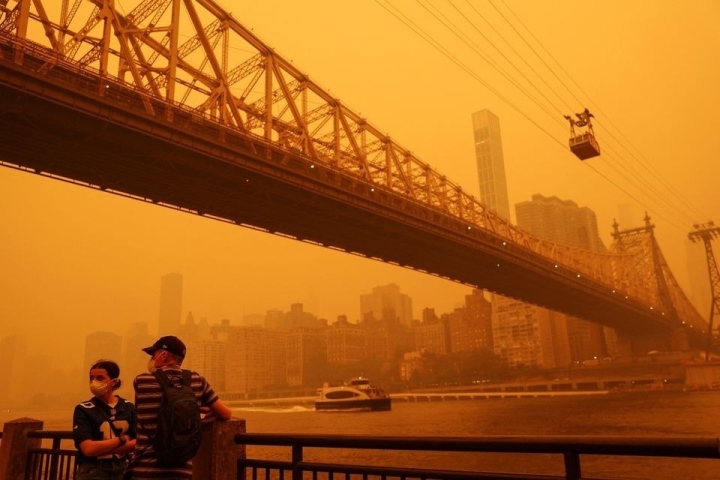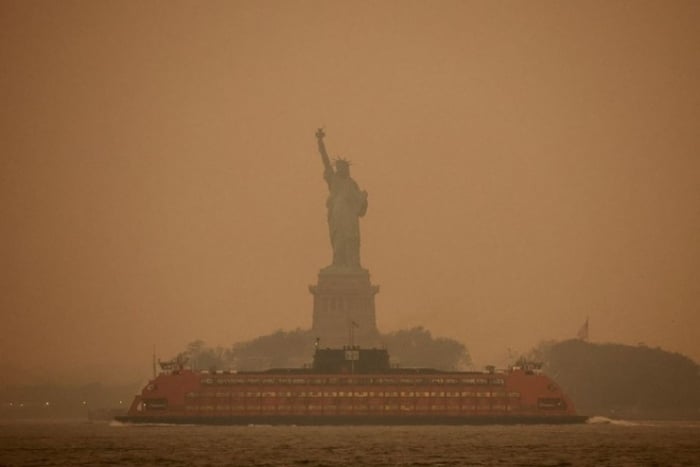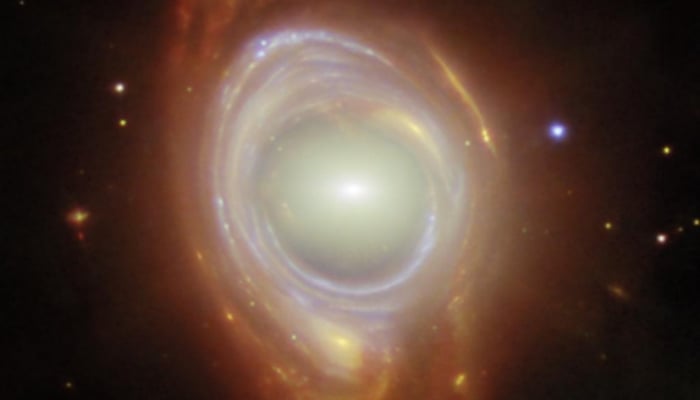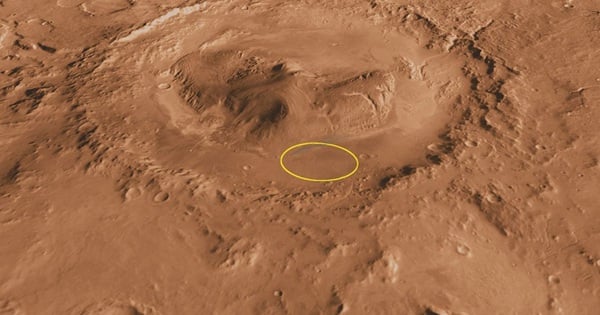“Everything was orange. I’ve never seen anything like it before,” New York City resident Kimberly Saltz told The Washington Post, adding that her first thought when she looked out her window was “it looks like Mars.”
Experts say the color of the sky comes from the types and numbers of tiny particles in the air, as well as the wavelengths of light they block. This phenomenon, called Rayleigh scattering, is also responsible for orange skies, explains Peter Kalmus, a climate scientist at NASA's Jet Propulsion Laboratory.

Smoke from a wildfire in Canada blankets the East River, turning the sky orange. Photo: Reuters.
On a normal day, the air in New York is not dense with particulate matter, and shorter-wavelength blue light is scattered more than red light, making the sky appear blue. But as smoke particles travel through the air, they absorb all short-wavelength light like blue and violet, scattering only long-wavelength light like red and orange, Kalmus explains.
“The intensity of Rayleigh scattering depends on the wavelength of the light and the size and density of the scattering particles,” the expert said. Light with short wavelengths, such as blue, is attenuated more strongly by dust than light with long wavelengths, such as red light.

The Statue of Liberty is shrouded in smog. Photo: Reuters.
“Anytime you add particles from volcanic soot or wildfires to the air, it changes the way light reflects,” said Jennifer Marlon, a climatologist at the Yale School of the Environment.
The particles being released in New York this time are the remains of wood, leaves and pine needles burned in Canada. Some of the particles are large, but most are microscopic, and some may be downright chemical, Marlon said, adding that all are toxic.
The “particle cloud” that creates orange skies is affecting millions of Americans, with local authorities urging people to avoid or minimize time outdoors. Some people have used the orange imagery to film scenes of “doomsday mornings.” Others have shared on social media that the orange skies have left them fearful.
Experts say people who are in the thick smoke may feel sadder than usual, as lack of sunlight causes the body to produce more melatonin, similar to wintertime mood disorders. In addition, images of orange skies appearing repeatedly on social media can cause anxiety in many people.
“The orange sky makes climate change and, in this case, wildfires very visual. All of these things can bring up feelings of fear or sadness,” says Sarah Lowe, a clinical psychologist at the Yale School of Public Health.
(Source: Zing News)
Useful
Emotion
Creative
Unique
Source



![[Photo] Looking back at the impressive moments of the Vietnamese rescue team in Myanmar](https://vstatic.vietnam.vn/vietnam/resource/IMAGE/2025/4/11/5623ca902a934e19b604c718265249d0)



![[Photo] "Beauties" participate in the parade rehearsal at Bien Hoa airport](https://vstatic.vietnam.vn/vietnam/resource/IMAGE/2025/4/11/155502af3384431e918de0e2e585d13a)



























![[Photo] Summary of parade practice in preparation for the April 30th celebration](https://vstatic.vietnam.vn/vietnam/resource/IMAGE/2025/4/11/78cfee0f2cc045b387ff1a4362b5950f)




























































Comment (0)